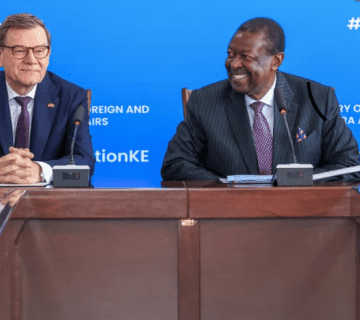The election of Donald Trump in 2016 marked a significant shift in U.S. environmental policy, particularly in the realm of climate change. His administration’s approach to climate policy was characterized by a systematic dismantling of environmental regulations, a withdrawal from international climate agreements, and a prioritization of fossil fuel interests over renewable energy initiatives. As Trump returned to office in 2025, his anti-climate agenda has intensified, with far-reaching consequences for both the United States and the global community. Drawing on a range of sources, including executive actions, policy analyses, and expert commentary, this essay examines the implications of Trump’s anti-climate policies, their impact on global climate efforts, and the broader consequences for environmental sustainability.
Rolling Back Environmental Regulations
One of the hallmarks of Trump’s anti-climate policy has been the aggressive rollback of environmental regulations designed to curb greenhouse gas emissions and promote clean energy. In January 2025, Trump signed an executive order titled Putting America First in International Environmental Agreements, which sought to prioritize domestic economic interests over global environmental commitments. This order effectively nullified U.S. participation in key international agreements, including the Paris Agreement (2015) under the UN Framework Convention on Climate Change, and signaled a retreat from global climate leadership. According to the Associated Press, this move was part of a broader strategy to deregulate industries, particularly fossil fuels, and reduce the regulatory burden on businesses.
The Trump administration’s deregulatory agenda has had a profound impact on domestic climate policy. For instance, the Environmental Protection Agency (EPA) under Trump has weakened emissions standards for power plants, vehicles, and industrial facilities, reversing years of progress in reducing carbon emissions. As noted by the World Resources Institute (WRI), these rollbacks have undermined the U.S.’s ability to meet its climate targets and have set a dangerous precedent for other nations. The administration’s focus on fossil fuel development, including expanded drilling and mining on federal lands, has further exacerbated the climate crisis, locking the country into a high-carbon energy future.
Withdrawal from International Climate Agreements
Trump’s decision to withdraw from the Paris Agreement during his first term was a defining moment in his anti-climate agenda. In his second term, this stance has only hardened. The Guardian reports that Trump’s administration has systematically removed references to climate change from federal websites and public communications, effectively erasing the issue from the national discourse. This deliberate obfuscation of climate science has undermined public awareness and hindered efforts to build consensus on the need for urgent action.
The withdrawal from international agreements has also isolated the U.S. from the global community. As Climate Change News highlights, Trump’s “America First” approach to environmental policy has strained diplomatic relations and weakened the global response to climate change. By refusing to cooperate with other nations on climate initiatives, the U.S. has ceded its leadership role, creating a vacuum that has been partially filled by countries like China, India, Brazil, and the European Union. However, the absence of the world’s largest economy and second-largest emitter of greenhouse gases has made it more difficult to achieve the collective action needed to address the climate crisis.
Impact on Clean Energy and Innovation
While the Trump administration has prioritized fossil fuels, the momentum toward clean energy has continued, albeit at a slower pace. According to NPR, the growth of renewable energy in the U.S. has been driven largely by market forces and state-level initiatives, rather than federal policy. States like California and New York have implemented ambitious climate targets and invested heavily in wind, solar, and other renewable technologies. However, the lack of federal support has created uncertainty for investors and hinders the scaling up of clean energy projects.
The American Progress report underscores the economic and environmental costs of Trump’s anti-climate policies, particularly in terms of lost opportunities for innovation and job creation in the clean energy sector. By favoring fossil fuels over renewables, the administration has stifled the growth of a burgeoning industry that could have provided millions of jobs and reduced the country’s carbon footprint. Moreover, the rollback of environmental regulations has disproportionately affected low-income communities and communities of color, who are often the most vulnerable to the impacts of climate change.
Global Consequences of U.S. Inaction
The global implications of Trump’s anti-climate policies cannot be overstated. As The Conversation points out, the U.S.’s retreat from climate leadership has emboldened other nations to weaken their commitments, creating a domino effect that threatens to derail global efforts to limit warming to 1.5°C. The absence of U.S. leadership is also going to hamper the flow of climate finance to developing countries, which rely on international support to transition to low-carbon economies and adapt to the impacts of climate change.
Furthermore, the U.S.’s continued reliance on fossil fuels has contributed to rising global emissions, exacerbating the climate crisis. According to the Intergovernmental Panel on Climate Change (IPCC), the world is on track to exceed the carbon budget for limiting warming to 1.5°C within the next decade, making the need for urgent action more critical than ever. Trump’s policies have not only delayed progress but have also made it more difficult to achieve the deep emissions reductions required to avert catastrophic climate impacts.
A Path Forward
Despite the challenges posed by Trump’s anti-climate policies, there is still hope for meaningful action on climate change. The resilience of state and local governments, the private sector, and civil society has demonstrated that progress is possible even in the absence of federal leadership. However, reversing the damage done by the Trump administration will require a concerted effort to reinstate environmental regulations, rejoin international agreements, and invest in clean energy and climate resilience.
As the World Resources Institute emphasizes, the transition to a low-carbon economy is not only an environmental imperative but also an economic opportunity. By embracing renewable energy and sustainable practices, the U.S. can reclaim its position as a global leader and drive the innovation needed to address the climate crisis. The stakes could not be higher, and the time for action is now.
Conclusion
Donald Trump’s anti-climate policies represent a significant setback for global efforts to combat climate change. By rolling back environmental regulations, withdrawing from international agreements, and prioritizing fossil fuels over clean energy, his administration has undermined the progress made in recent decades and jeopardized the future of the planet. The consequences of these policies are far-reaching, affecting not only the U.S. but also the global community. However, the resilience of state and local initiatives, coupled with the growing momentum of the clean energy transition, offers a glimmer of hope. Moving forward, it is imperative that the U.S. recommits to climate leadership and takes bold action to address the defining challenge of our time.
Oumalkhaire Yacin is Research fellow at UNU-UNFCCC
Photo Credits: US State Department



